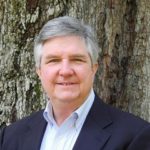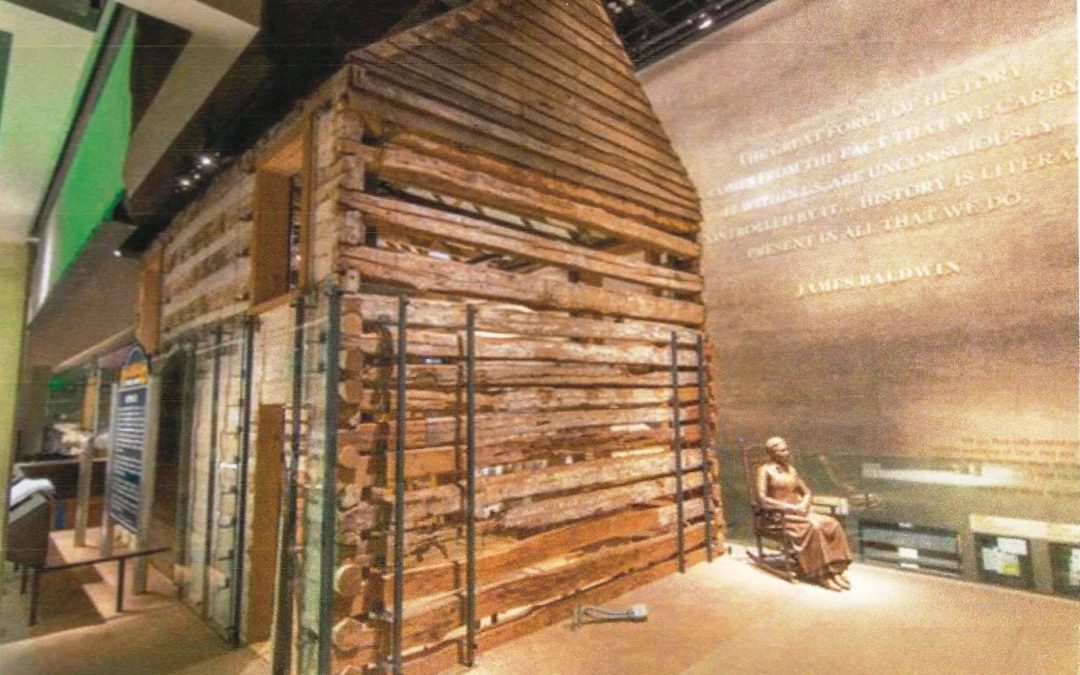Oral Histories Help Make The Freedom House a Home
One more way that I am connected to the Smithsonian’s National Museum of African American History and Culture (NMAAHC), an essential part of the “nation’s attic” that has met with resounding success and uplifted interest in history across the nation, is through efforts to record personal accounts that will expand our knowledge of what this house meant to generations of its residents and community.
How did my connection with the NMAAHC come about in the first place? In the late 1970s, while a grad student at Duke, I worked for the Maryland Historical Trust and Sugarloaf Regional Trails, documenting houses and buildings in historical African American communities in Montgomery County, Maryland. Little did I know then, but almost 40 years later, one of those houses would be selected for exhibition in the new museum and designated as the “Freedom House.” Having been built in 1874 by newly emancipated African Americans, it represents the kinds of houses built soon after “freedom.”
Since the museum wanted to digitize my archives and make them available to scholars and the public, they offered me a contract to record oral histories with curators, contractors, community members, and former residents, so that a more complete and lively story could be told. In doing so, I have been aided by the participation, personal memories, knowledge, and expertise of the following individuals (in alphabetical order):
Chanell Kelton, who grew up in the house with her beloved grandfather and grandmother and extended family from the mid-1980s to mid-90s. She explained that her grandparents had strong values, instilled in her self-respect and the importance of hard work, loved to cook and to be hospitable, and encouraged her to push and get back up again, saying, “You’ve got to believe in yourself.” As she declared: “Though this house was just built of logs, it was filled with love.”
Spencer Crew, historian and guest curator of The Segregation Era exhibit at the Smithsonian’s NMAAHC;
Trudy Hutchinson, experienced videographer with excellent production skills;
Suzanne Johnson, community historian of Sugarland, Maryland, one of the hundreds of all-black towns and communities established by freed slaves after the Civil War. Suzanne and her friend Gwen Reese led successful efforts in historic preservation and they both won awards with me last year from the Montgomery County Council.
Kelli Elaine Navies, UNC grad and the museum’s experienced oral historian;
Bill Pretzer, the wise, knowledgeable, and humane senior curator;
Gwen Reese, community historian of Sugarland, Maryland, one of the hundreds of all-black towns and communities established by freed slaves after the Civil War. Gwen and her friend Suzanne Johnson led successful efforts in historic preservation and they both won awards with me last year from the Montgomery County Council.
Kerry L. Shackelford, knowledgeable and skillful contractor who dismantled the house in situ and re-assembled it in the museum. In heartfelt ways, he connected with families who had lived in the house from generation to generation.
Paris Young, wonderful and proactive intern from Washington College;

With me is Kerry Shackelford, left, with Museum Resources; his company handled the disassembly and reassembly of the Freedom House; at center is Kelli Navies, oral historian.

Paul Gardullo, center, with me and Kelli.

Bill Pretzer and me.

Spencer Crew, historian and guest curator. Photo credit: Washington Post

Chanell Kelton took her first steps in the Jones-Hall-Sims House.

Interviewing Gwen Reese and Suzanne Johnson, friends and members of the nearby Sugarland community.

Second from left: videographer Trudy Hutchinson with L-R: Kelli Navies, Chanell Kelton, and me.

L-R: Intern Paris Young from Washington College and me, Paul, and Trudy.
Click here for more about the planning of the oral histories.
 George W. McDaniel, Ph.D., is President of McDaniel Consulting, LLC, a strategy firm that helps organizations use history to build bridges within itself and to its broader constituents. The company’s tag line, “Building Bridges through History,” is grounded in McDaniel’s personal beliefs and his experience in site management, preservation, education, board development, fundraising, and community outreach. Rather than using history to divide us, he strives to help organizations use history, especially local history, to enhance cross-cultural understanding and to support local museums, preservation, and education. Dr. McDaniel recently led volunteer efforts with Emanuel AME Church and historical organizations in Charleston to use historic preservation to enhance racial reconciliation and healing. McDaniel is also the Executive Director Emeritus of Drayton Hall, a historic site in Charleston, SC, owned by the National Trust for Historic Preservation.
George W. McDaniel, Ph.D., is President of McDaniel Consulting, LLC, a strategy firm that helps organizations use history to build bridges within itself and to its broader constituents. The company’s tag line, “Building Bridges through History,” is grounded in McDaniel’s personal beliefs and his experience in site management, preservation, education, board development, fundraising, and community outreach. Rather than using history to divide us, he strives to help organizations use history, especially local history, to enhance cross-cultural understanding and to support local museums, preservation, and education. Dr. McDaniel recently led volunteer efforts with Emanuel AME Church and historical organizations in Charleston to use historic preservation to enhance racial reconciliation and healing. McDaniel is also the Executive Director Emeritus of Drayton Hall, a historic site in Charleston, SC, owned by the National Trust for Historic Preservation.
A frequent writer, speaker, and facilitator about such issues, he can be reached at gmcdaniel4444@gmail.com or through his website at www.mcdanielconsulting.net.
Header Image: The 1874 Jones-Hall-Sims “Freedom House” from Maryland on exhibit at the Smithsonian’s National Museum of African American History and Culture in Washington D.C.
Important Note: As Kerry Shackelford dismantled the house, constructed in 1874, he realized that from the exterior one would have seen it was a log house, but once inside, one would have seen plastered and whitewashed walls, which created one plane of color, making it seem more like a well finished frame house. This important detail, not seen today, distinguished it from houses of enslaved families, which the newly emancipated Jones family had left behind.
All images courtesy of the author unless otherwise noted.

 McDaniel Consulting LLC is a strategy firm that helps organizations use history to build bridges within itself and its broader constituents.
McDaniel Consulting LLC is a strategy firm that helps organizations use history to build bridges within itself and its broader constituents.